Competitor analysis is the key to staying ahead in today’s competitive market. AI tools for competitor analysis can help businesses glean valuable insights into competitors’ strategies.
Marketing efforts Product presentation and customer feedback. These tools use machine learning and data analysis to provide real-time insights. Helping companies make more informed decisions.
In this article, we’ll explore the top AI tools for competitor analysis that can impact your business and help you optimize your strategy.
1. SimilarWeb
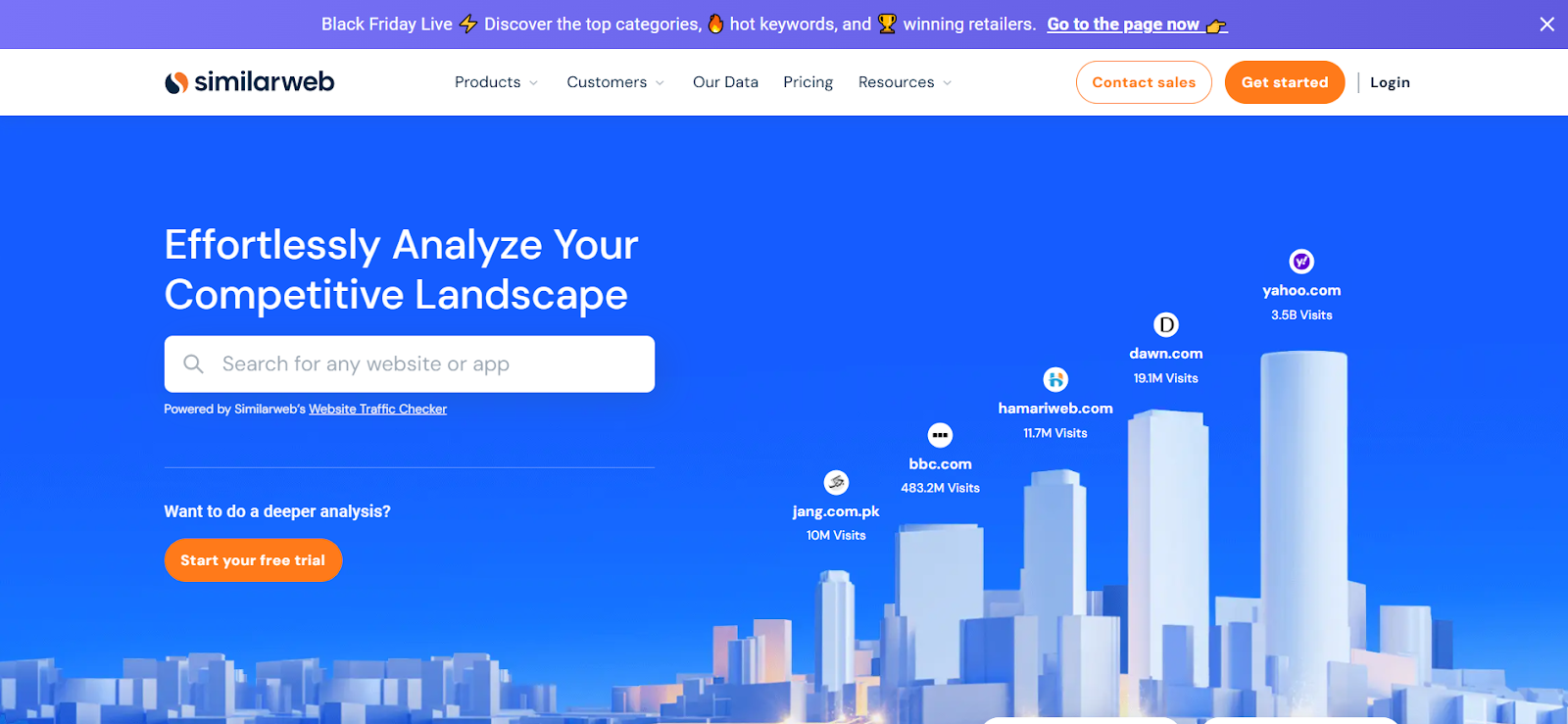
Via: SameWeb
SimilarWeb is a digital intelligence tool that provides insights into website traffic. Audience demographics and activities of competitors
Key Points:
- SimilarWeb may keep track of website traffic, such as visitor statistics.
- Page views and bounce rate It can provide information about website visitors such as age, gender, location, and interests.
- SimilarWeb can compare your website with your competitors and help you identify areas for improvement.
- It can help you identify relevant keywords for your website.
Pros:
- It’s easy to use.
- Daduman
- It gives a lot of information.
- It can be used for testing both websites and mobile apps.
Cons:
- May not be as accurate as other tools
- Limited options customized
- It requires a subscription.
2. Alexa
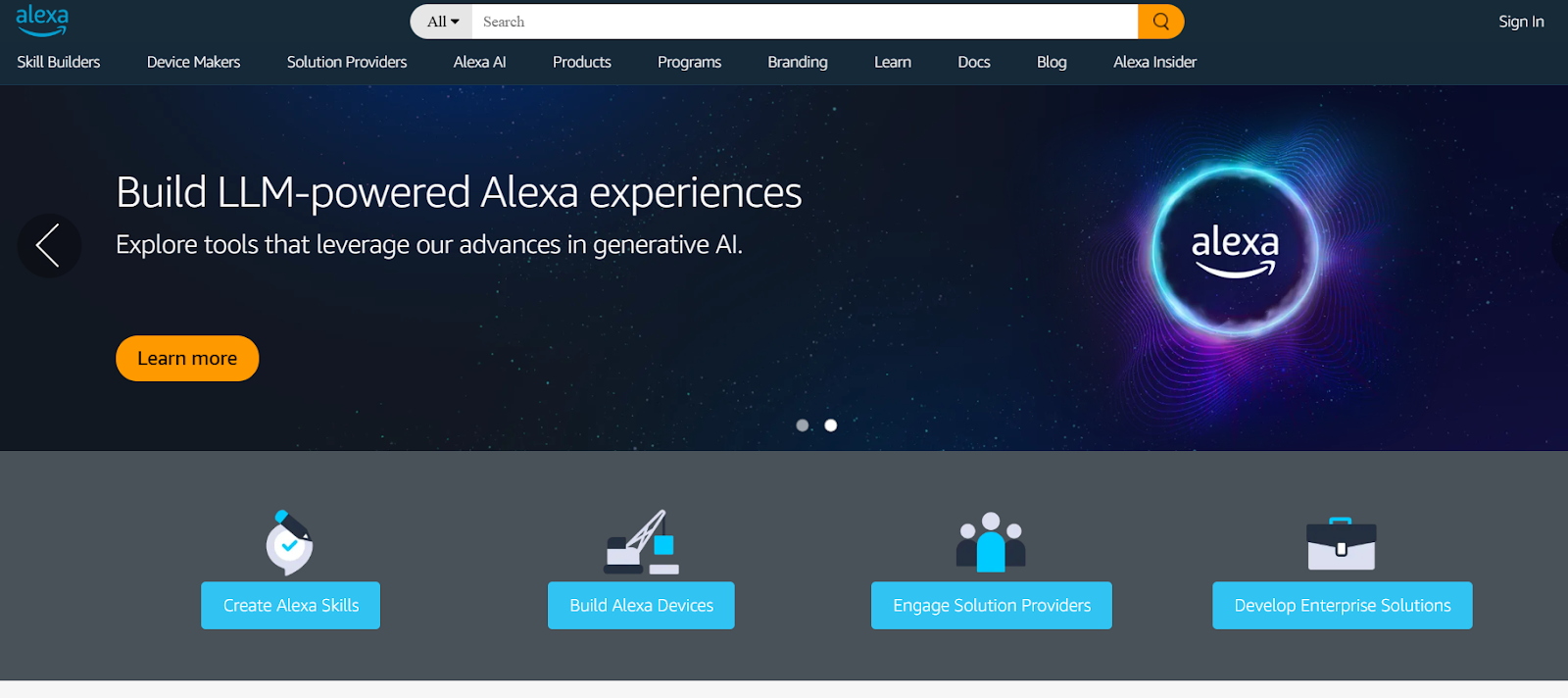
Via: Alexa
Alexa is a web analytics tool that provides insights into website traffic. Audience demographics and the activities of competitors belong to Amazon
Key Points:
- Alexa can track website traffic.
- Including the number of visitors Page views and bounce rate
- It can provide information about website visitors such as age, gender, location, and interests.
- Alexa can compare your websites.
Pros:
- It’s easy to use.
- Daduman.
- It gives a lot of information.
- Can work with other Amazon products.
Cons:
- May not be as accurate as other tools
- Limited options customized
- It requires a subscription.
3. Ahrefs
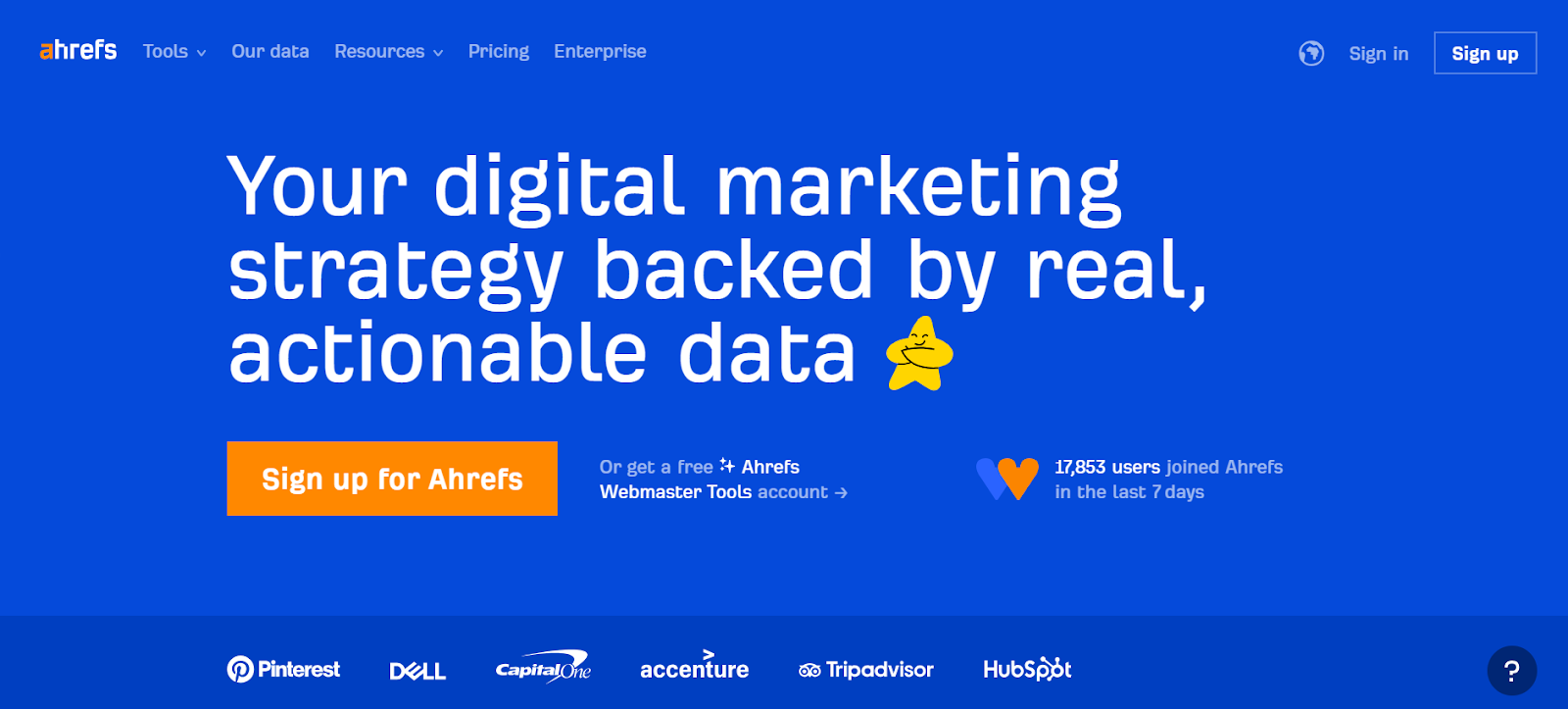
Via: Ahrefs
Ahrefs is a behind-the-scenes analytics tool that can provide insights into website traffic. Audience demographics and activities of competitors.
Key Points:
- Ahrefs can help you identify and analyze the background of your website as well as the background of your competitors.
- Ahrefs may track website traffic.
- Including the number of visitors Page views and bounce rate
- It can provide information about website visitors such as age, gender, location, and interests.
- Ahrefs can help you identify relevant keywords for your website.
Pros:
- Powerful backlink analysis tool
- Accurate website traffic information
- It gives a lot of information.
- Provide good customer service
Cons:
- Can be expensive
- It requires a subscription and credit systems
4. SEMrush
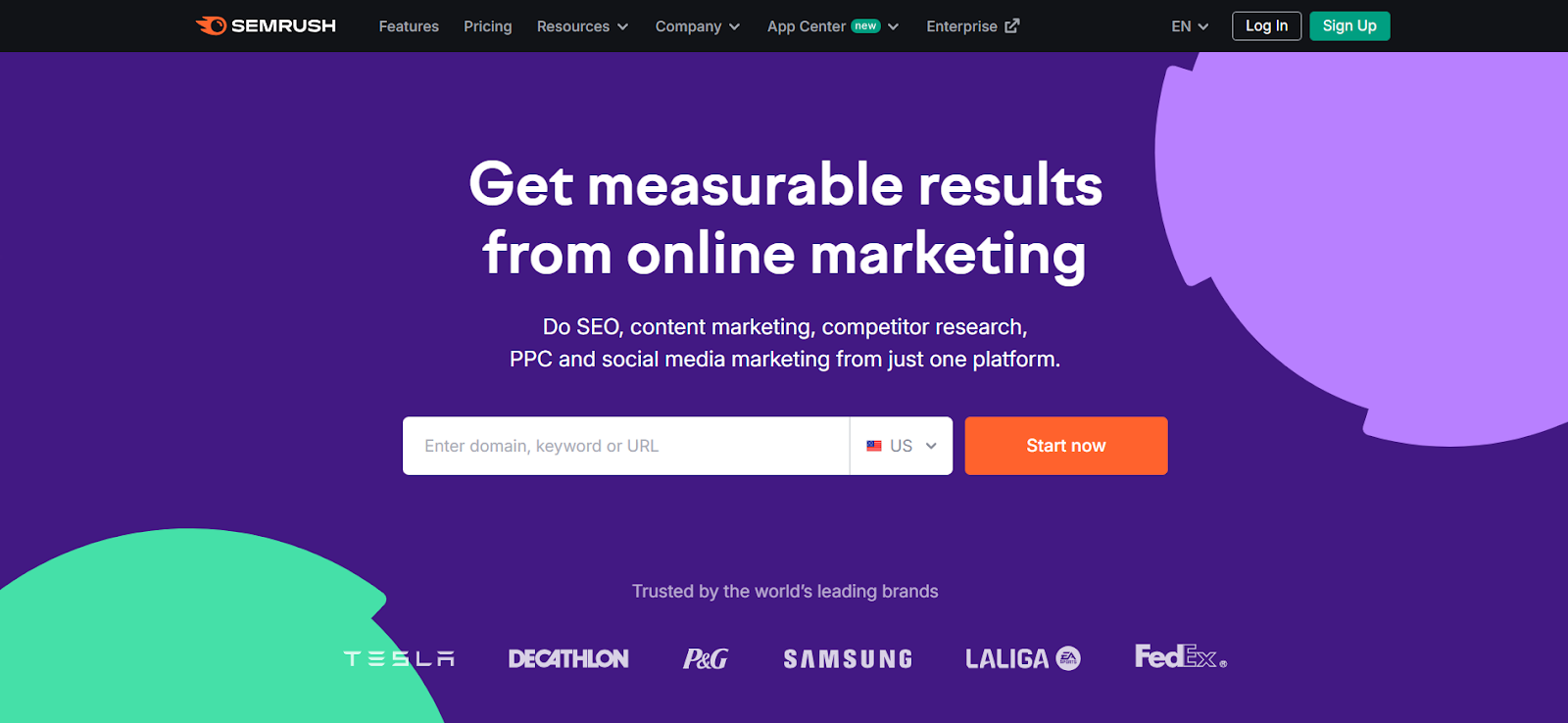
Via: Semrush
SEMrush is a digital marketing tool that can provide insights into website traffic. Audience demographics and activities of competitors are Especially useful for SEO and PPC.
Key Points:
- SEMrush can help you improve your website’s SEO and PPC performance.
- SEMrush can track website traffic. Including the number of visitors Page views and bounce rate
- It can provide information about website visitors such as age, gender, location, and interests.
- SEMrush can compare your website with your competitors. Helps you identify areas for improvement.
Pros:
- Strong SEO and PPC as well.
- Accurate website traffic information
- It gives a lot of information.
- Provide good customer service
Cons:
- Can be expensive
- Limited chat support Mon-Fri, not 24/7
- Not for beginners
5. SpyFu
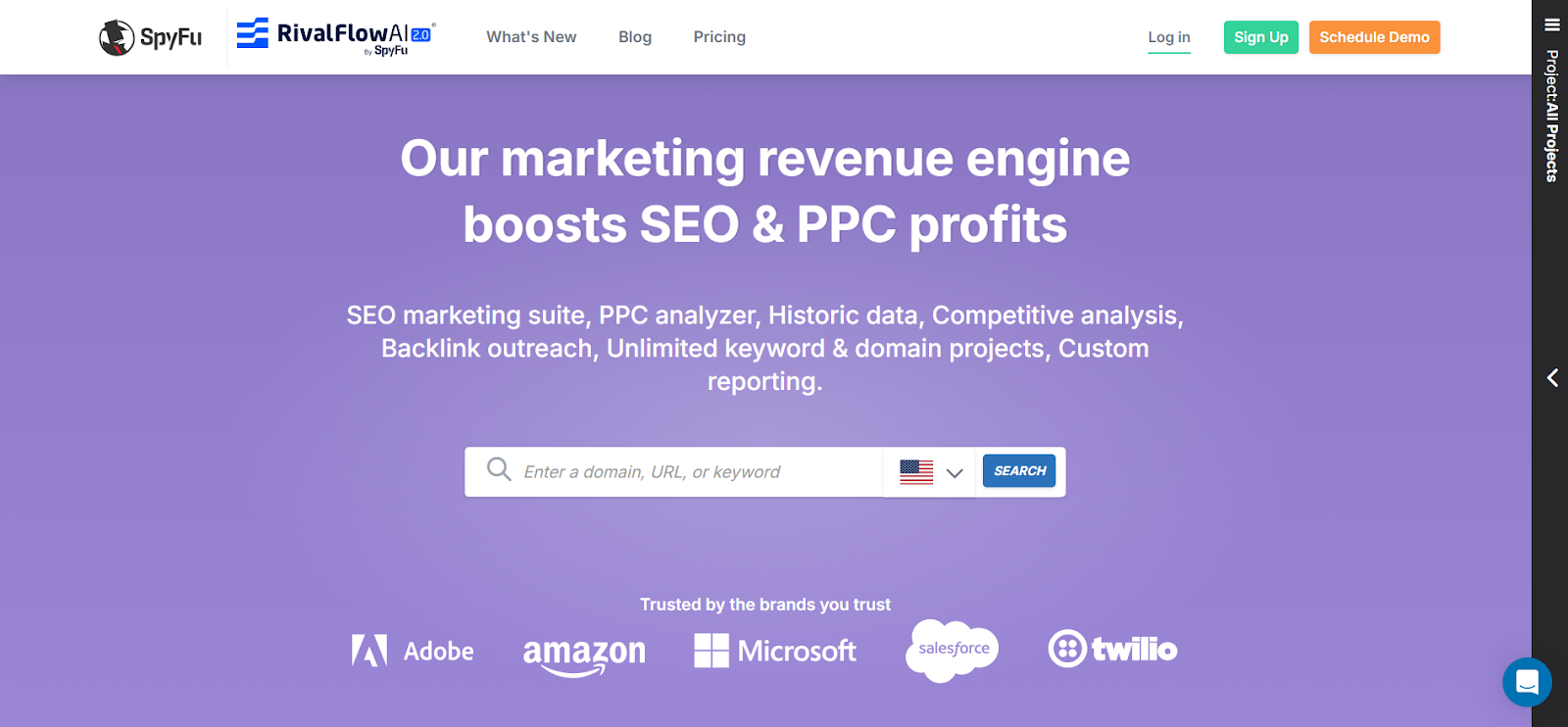
Via: SpyFu
SpyFu is a competitive intelligence tool that can provide insights into your competitors’ SEO and PPC strategies.
Key Points:
- SpyFu can help you understand your competitors’ SEO and PPC strategies.
- SpyFu can help you identify relevant keywords for your website.
- SpyFu can analyze your competitors’ ad copy to help you improve your ads.
- SpyFu can help you learn about your competitors’ backgrounds.
Pros:
- Powerful interactive intelligence tools
- It’s easy to use.
- Daduman.
- It gives a lot of information.
Cons:
- May not be as comprehensive as other tools
- It requires a subscription.
6. BuzzSumo
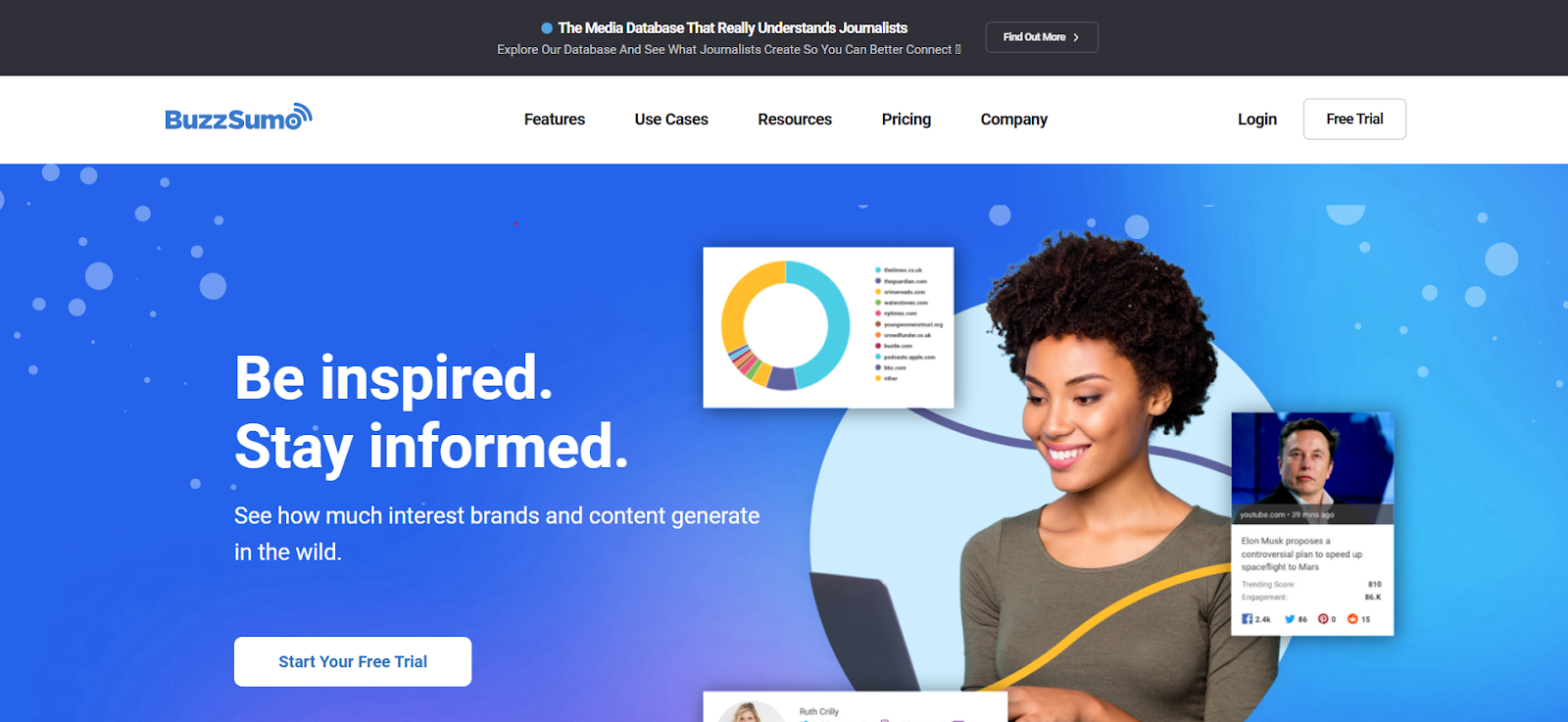
Via: BuzzSumo
BuzzSumo is a content analysis tool that can help you identify the most popular and influential content topics in your industry.
Key Points:
- BuzzSumo can help you identify popular and impactful content topics in your industry.
- BuzzSumo can help you track mentions of your brand and competitors on social media.
- BuzzSumo can help you identify your competitors’ top content.
- BuzzSumo can help you identify influencers in your industry.
Pros:
- Powerful content analysis tools
- It’s easy to use.
- User-friendly interface
- It gives a lot of information.
Cons:
- Information overload
- Limited free version
- It requires a subscription.
7. Brandwatch
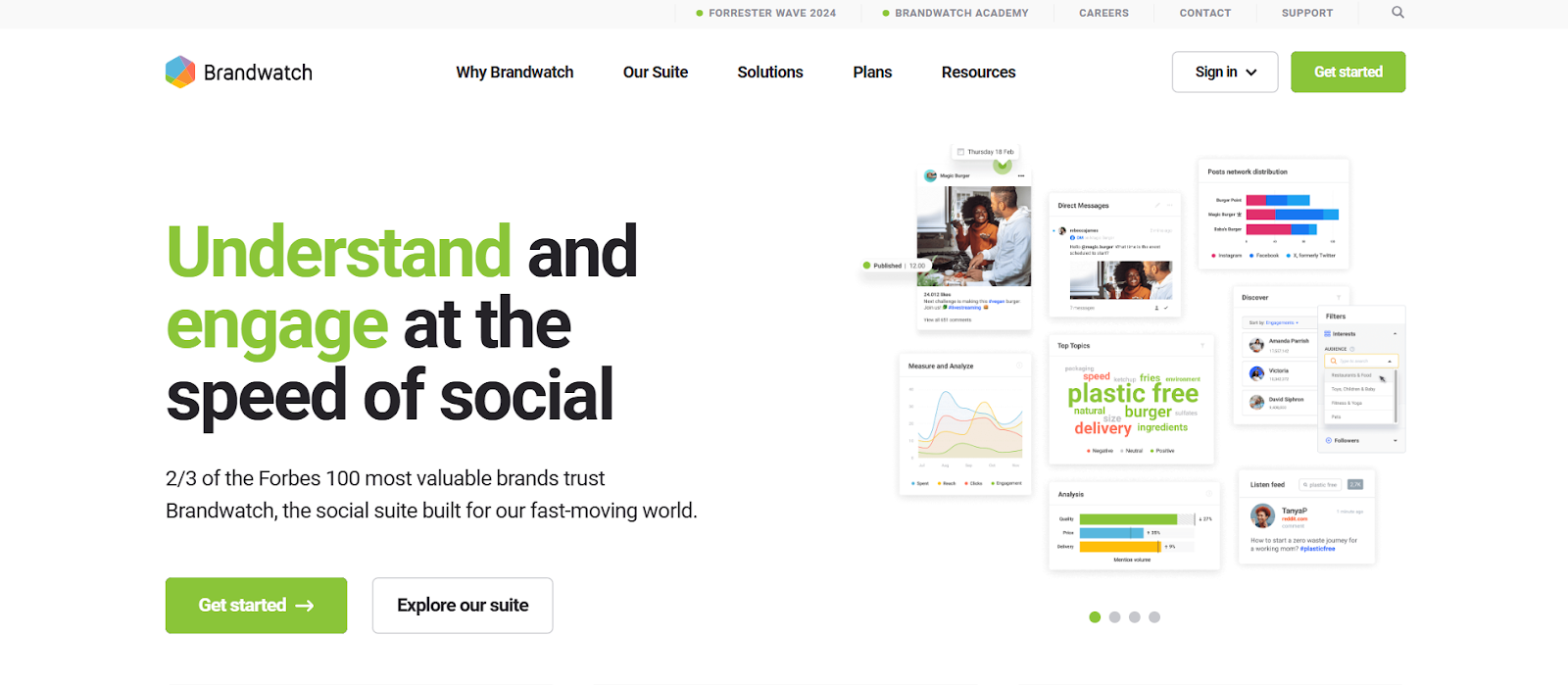
Via: Brandwatch
Brandwatch is a social media monitoring tool that can help you track mentions of your brand and competitors on social media.
Key Points:
- Brandwatch can help you track the social media coverage of your brand and competitors.
- Brandwatch can analyze the sentiment of mentions on social media.
- Brandwatch can help you identify your competitors’ top content.
- Brandwatch can help you identify influencers in your industry.
Pros:
- Powerful social media monitoring tool
- Accurate mood analysis
- It gives a lot of information.
- Provide good customer service
Cons:
- Can be expensive
- Complex interface
8. Mention
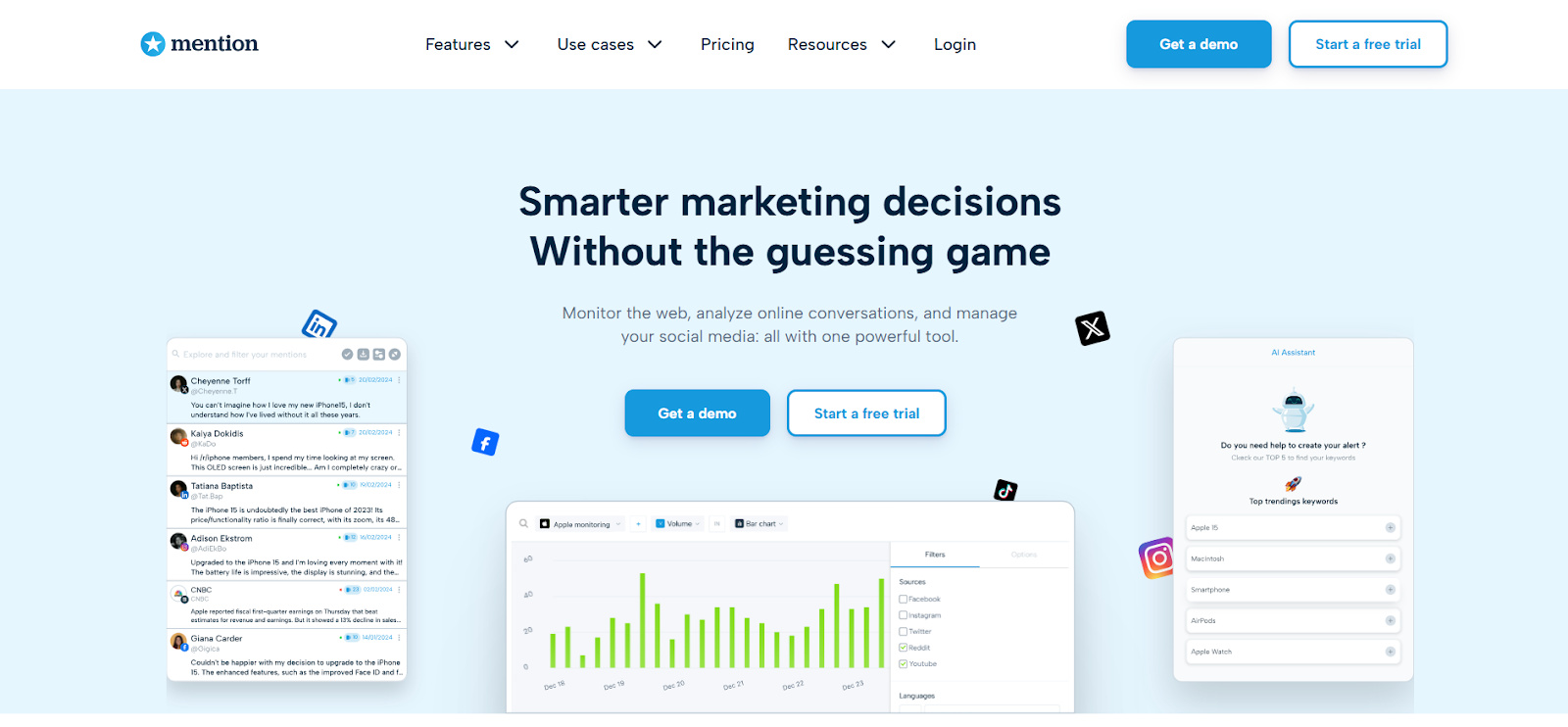
Via: Mention
Mention is a social media tracking tool that can help you track mentions of your brand and competitors on social media.
Key Points:
- Mentions can help you track mentions of your brand and competitors on social media.
- Mentions can distort the mood of social media mentions.
- Mentions can help you identify your competitors’ popular content.
- Mentions can help you identify influencers in your industry.
Pros:
- Powerful social media monitoring tool
- Accurate mood analysis
- It’s easy to use.
- Daduman.
Cons:
- May not be as comprehensive as other tools
- It requires a subscription.
9. Google Trends
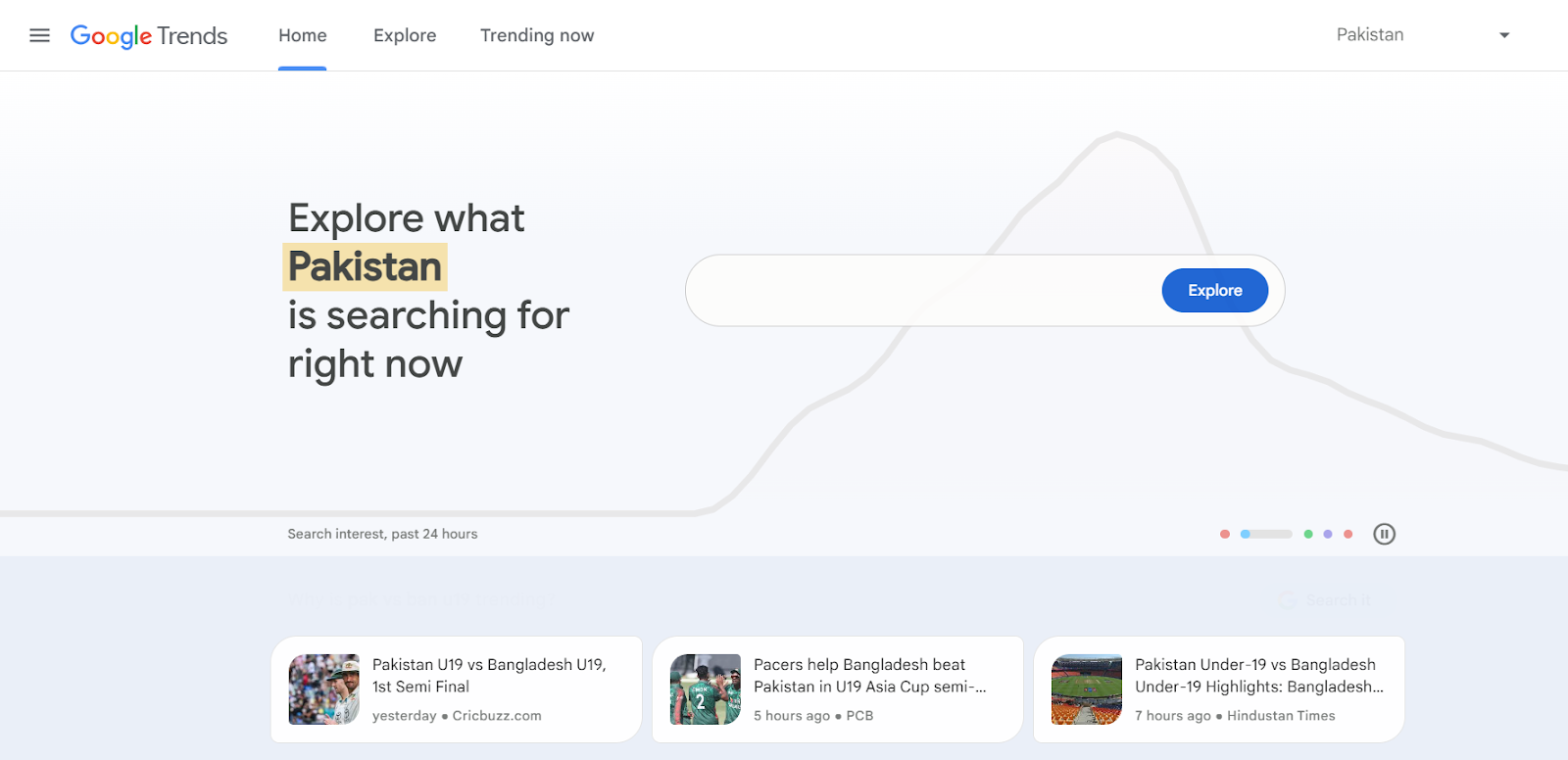
Via: Google Trends
Google Trends is a tool that can help you identify popular search terms and trends.
Key Points:
- Google Trends can help you identify popular search terms and trends.
- Google Trends can help you identify your competitors’ popular content.
- Google Trends can help you generate content ideas.
- Google Trends can help you identify relevant keywords for your website.
Pros:
- to exchange things
- It’s easy to use.
- It gives a lot of information.
- It can be used for testing both websites and mobile apps.
Cons:
- May not be as accurate as other tools
- Limited options customized
10. Social Blade
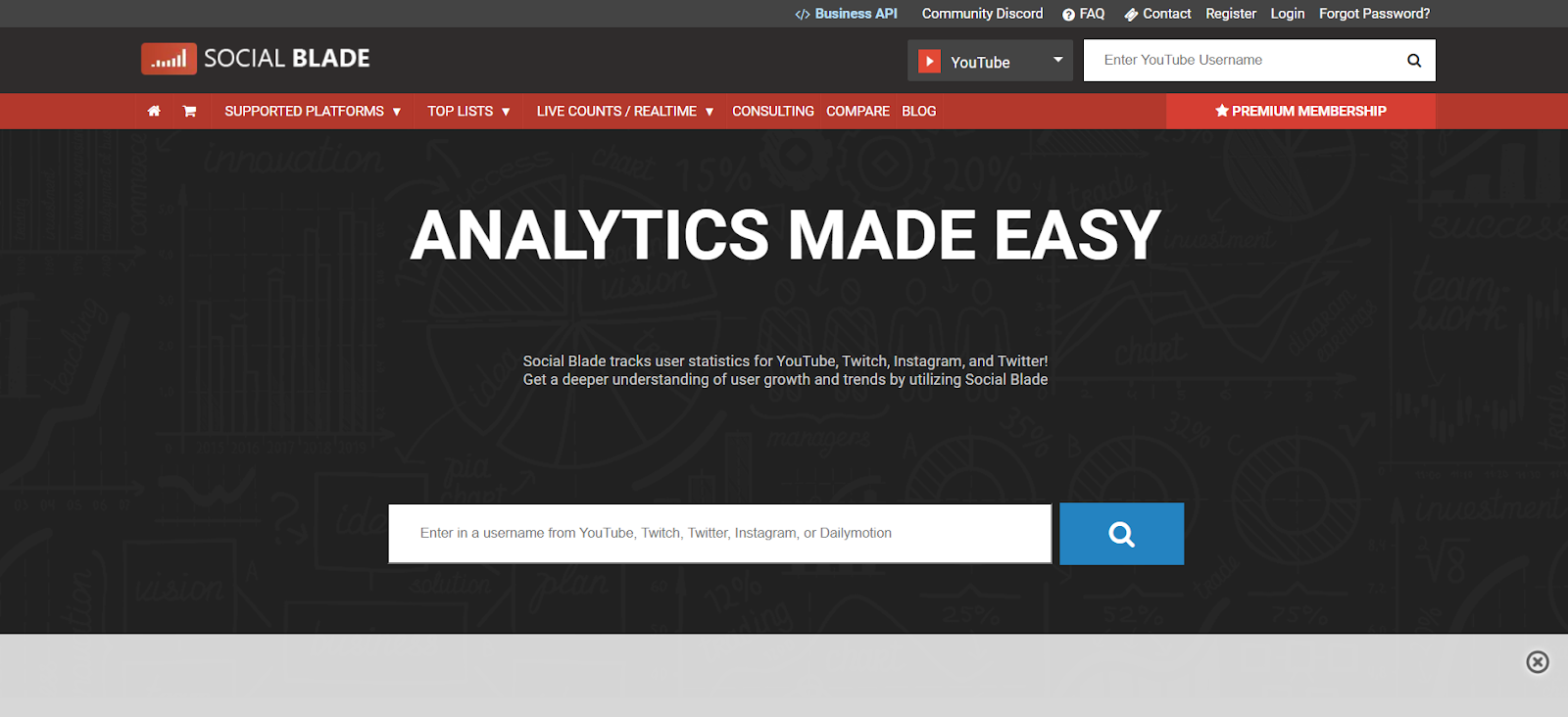
Via: Social Blade
Social Blade is a social media analysis tool that can help you monitor the size of your social media accounts and those of your competitors.
Key Points:
- Social Blade can help you track the growth of your own and your competitors’ social media accounts.
- Social Blade can track engagement metrics.
- Including likes, comments, and shares. Social Blade can help you compare your social media performance to your competitors.
- Social Blade can help you identify influencers in your industry.
Pros:
- Powerful social media analysis tool
- It’s easy to use.
- Daduman.
- It gives a lot of information.
Cons:
- May not be as comprehensive as other tools
- It requires a subscription.
Conclusion:
Using AI tools for competitor analysis is a smart way to stay ahead of the competition and make informed decisions. These tools provide insights into competitors’ actions.
This allows you to adjust your strategy accordingly. With the right AI tools, you can identify market trends, spot opportunities, and refine your business strategy for a competitive advantage.
The tools listed above have powerful features to help you achieve your business goals.



